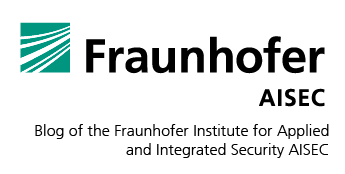About
Fraunhofer Institute for Applied and Integrated Security AISEC
The Fraunhofer Institute for Applied and Integrated Security AISEC is a world-leading institution for applied research in cybersecurity. More than 230 highly qualified employees develop customized security concepts and solutions for businesses and the public sector, boosting the competitiveness of clients and partners. Fraunhofer AISEC designs solutions for enhanced data security and effective defence against cybercrimes such as corporate espionage and tampering attacks. The institute’s portfolio ranges from embedded and hardware security, automotive and mobile security to security solutions for industry and automation. In addition, its cutting-edge test labs allow for evaluating the security of networked and embedded systems, hardware and software products as well as cloud and web-based services.
On this blog, you will learn more about the research areas of our institute and gain insights into the work of IT security researchers.

Christian Banse
Christian Banse holds a Master of Science in Business Information Systems with a focus on IT security from the University of Regensburg. He has been an employee at Fraunhofer AISEC since 2011. He was responsible for setting up a new type of network and cloud security laboratory, which he is now managing. This laboratory investigates research questions related to networks and IP-based communication. A particular focus is on research into methods for the automated and continuous certification of the IT security of cloud and container applications. Since mid-2018, Christian Banse has also been head of the Service and Application Security department.
Contact: christian.banse (at) aisec.fraunhofer.de

Magdalena Bertram
Magdalena Bertram has been a student researcher at Fraunhofer AISEC in the Secure Software Engineering department since 2020. She completed her Bachelor's degree in mathematics and is currently writing her Master's thesis in computer science in the field of lattice-based signature schemes. Her areas of focus include post-quantum cryptography, cryptanalysis and digital identities.
Contact: magdalena.bertram (at) aisec.fraunhofer.de
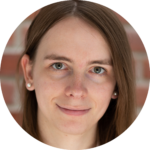
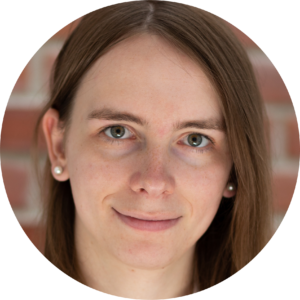
Katharina Bogad
Katharina Bogad joined Fraunhofer AISEC as a research fellow in 2020 after her studies in computer science at Technical University of Munich. Her research work currently focuses on security hardening and validation of low power, low cost embedded device operating systems.
Contact: katharina.bogad (at) aisec.fraunhofer.de

Nicolas Buchmann
Nicolas Buchmann graduated from Freie Universität Berlin in 2019 with a PhD in the life cycle of electronic travel documents focusing on cryptography, post-quantum cryptography and general IT security, and has been working at Fraunhofer AISEC since 2021. Alongside his PhD at Freie Universität Berlin, he oversaw the BMBF project “MEDIAN,” which focused on contactless fingerprint capturing.
Contact: nicolas.buchmann (at) @aisec.fraunhofer.de

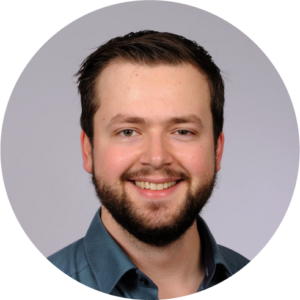
Lawrence Dean
Lawrence Dean joined Fraunhofer AISEC as an IT security researcher in 2020, right after studying computer science at Technische Universität Darmstadt. His main topics of research involve mobile security, secure software engineering as well as digital identities with an added focus on hardware backed security.
Contact: lawrence.dean (at) aisec.fraunhofer.de
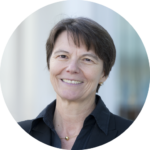
Claudia Eckert
Prof. Dr. Claudia Eckert is managing director of the Fraunhofer Institute for Applied and Integrated Security AISEC in Munich and professor at the Technical University of Munich, where she holds the Chair for IT Security at the department of Informatics. As a member of various national and international industrial advisory boards and scientific committees, she advises companies, trade associations and the public sector on all issues relating to IT security.
Contact: claudia.eckert (at) aisec.fraunhofer.de
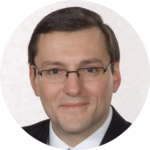
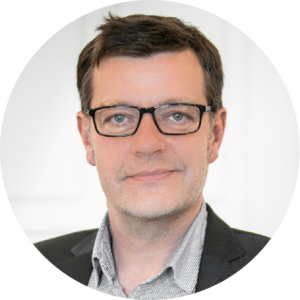
Alexander Giehl
Alexander Giehl has worked at Fraunhofer AISEC since 2013, where he specializes in improving cybersecurity via modelling and simulation. He focuses on secure embedded systems, security in manufacturing and automotive, digital twins, as well as general cybersecurity and management systems. In addition, he supervised the research project »IUNO Insec« developing cybersecurity solutions for SMEs funded by the German Federal Ministry of Education and Research (BMBF).
Contact: alexander.giehl (at) aisec.fraunhofer.de

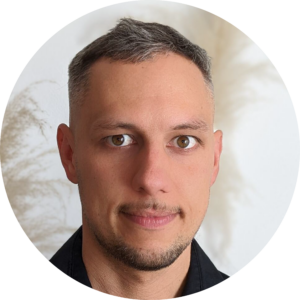
Nico Haas
After completing his Master’s degree in Computer Science at the University of Stuttgart, Nico Haas joined the Service and Application Security department at Fraunhofer AISEC in 2021. His primary work involves research and development in the area of cloud security, with a specific focus on Continuous Cloud Security Monitoring and Certification.
Contact: nico.haas (at) aisec.fraunhofer.de


Immanuel Kunz
Immanuel Kunz is a researcher in the field of security and privacy engineering with a focus on cloud environments. He has been working at Fraunhofer AISEC since 2019 in various industry and research projects, like EU-SEC and MEDINA, and he is part of the Applied Privacy Technologies research group.
Contact: immanuel.kunz (at) aisec.fraunhofer.de
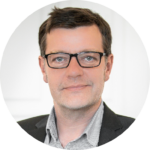

Marian Margraf
Marian Margraf is a professor of information security at Freie Universität Berlin and a department head at Fraunhofer AISEC. He has more than 15 years of experience in the field of information security. He first started his IT security career as a cryptologist at the German Federal Office for Information Security (BSI), where he worked from 2003 to 2008. He then took up the position of senior government official at the German Federal Ministry of the Interior (BMI) in 2008 and contributed to developing the German federal government’s key strategies for information security. He has been a professor since 2013. His research focuses on cryptography, mobile security and information security management. Marian Margraf heads the Secure Systems Engineering department at Fraunhofer AISEC, which specializes in electronic identities, post-quantum cryptography and the development of secure IT systems as well as the increasingly important topic of useable privacy and security. He is often invited to the German Bundestag as a subject expert, educating members of parliament on different issues concerning information security.
Contact: marian.margraf (at) aisec.fraunhofer.de
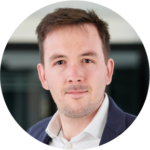
Nicolas Müller
Dr. Nicolas Müller studied mathematics, computer science and theology to state examination level at the University of Freiburg, graduating with distinction in 2017. Since 2017, he has been a research scientist in the Cognitive Security Technologies department of Fraunhofer AISEC. His research focuses on the reliability of AI models, ML shortcuts and audio deepfakes.
Contact: nicolas.mueller (at) aisec.fraunhofer.de
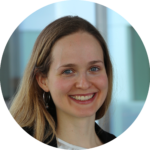
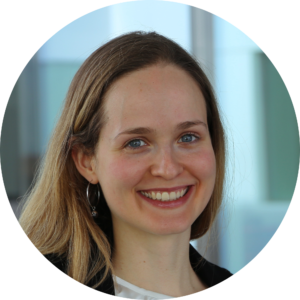
Karla Pizzi
Karla Pizzi has been working as a research fellow at Fraunhofer AISEC since 2018 following her studies in mathematics, political science and computer science.
She is currently working in the Cognitive Security Technologies research department, with a particular focus on adversarial examples to protect artificial intelligence systems from being manipulated.

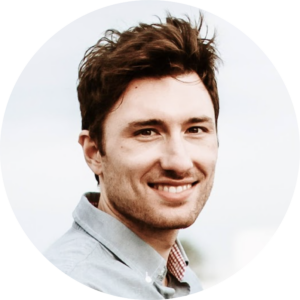
Maximilian Richter
Maximilian Richter is an IT security researcher and passionate about mathematical aspects of cryptography. After studying both mathematics and computer science and several years of practical experience as a working student with focus on risk and threat modeling, design of secure system architectures and cryptographic software development, he does research at Fraunhofer AISEC in the areas of post-quantum cryptography, quantum cryptanalysis, secure systems and digital identities since 2020.
Contact: maximilian.richter (at) aisec.fraunhofer.de


Felix Schärtl
Felix Schärtl has been a research fellow at the Weiden office of Fraunhofer AISEC since June 2020. As a mathematician and expert in cryptography in the secure infrastructure department, he conducts his research mainly in the field of applied post-quantum cryptography.
Contact: felix.schaertl (at) aisec.fraunhofer.de


Marc Schink
Marc Schink carries out research in the field of "Hardware Security" at Fraunhofer AISEC. In his private life as well as at the institute, he strives to detect vulnerabilities in hardware and software. He has conducted several vulnerability disclosure processes with renowned and international manufacturers.
Contact: marc.schink (at) aisec.fraunhofer.de

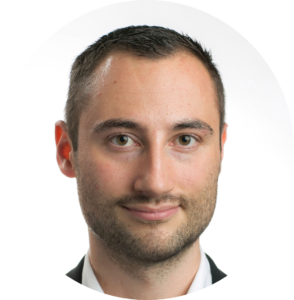
Jan-Philipp Schulze
Jan-Philipp Schulze joined Fraunhofer AISEC as a research fellow in January 2019 after completing his sudies in electrical engineering and information technology at ETH Zurich. He is also completing his PhD in computer science at TU Munich. His research work in the Cognitive Security Technologies research department currently focused on anomaly detection and adversarial machine learning.


Dieter Schuster
Dieter Schuster works in the research department “Product Protection and Industrial Security” at Fraunhofer AISEC. He coordinates the field of Offensive Security and Penetration Testing.
Contact: dieter.schuster (at) aisec.fraunhofer.de
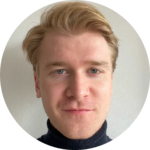

Jasper Seidensticker
Jasper Seidensticker is an M.Sc. student of mathematics at FU Berlin and works at Fraunhofer AISEC as a student researcher since 2021. His main fields of research are cryptography and cryptanalysis with a focus on post-quantum-cryptography, especially lattice-based primitives.
Contact: jasper.seidensticker (at) aisec.fraunhofer.de


Tudor Soroceanu
Tudor Soroceanu is responsible for several projects at Fraunhofer AISEC, including KBLS, which is adding post-quantum libraries to the Botan cryptolibrary. These post-quantum algorithms include CRYSTALS-Kyber and CRYSTALS-Dilithium.
Contact: tudor.soroceanu (at) aisec.fraunhofer.de


Tobias Specht
Tobias Specht is an IT security researcher in the field of penetration testing and static code analysis with a focus on the embedded and automotive domain. He has been working at Fraunhofer AISEC since 2018 and has contributed to industry and research projects such as the gallia framework. Together with his colleague Stefan Tatschner, he is maintainer of the gallia project.
Contact: tobias.specht (at) aisec.fraunhofer.de


Stefan Tatschner
Stefan Tatschner joined the Fraunhofer AISEC in 2015. His research focus is penetration and software testing in the automotive domain. Together with his college Tobias Specht, he maintains the gallia project.
Contact: stefan.tatschner (at) aisec.fraunhofer.de


Kilian Tscharke
Kilian Tscharke has worked at Fraunhofer AISEC since 2022. As part of the Quantum Security Technologies (QST) group he specializes on Anomaly Detection using Quantum Machine Learning. Part of his work is embedded in the Munich Quantum Valley, an initiative for developing and operating quantum computers in Bavaria. Here, he focuses on Quantum Kernel methods like the Quantum Support Vector Machine that use a quantum computer for the calculation of the kernel.
Contact: kilian.tscharke (at) aisec.fraunhofer.de


Benjamin Zengin
Benjamin Zengin has been working as a research fellow in the secure systems engineering department of Fraunhofer AISEC in Berlin since July 2018. The main focus of his research here is on post-quantum cryptography and supporting businesses in creating and evaluating cryptographic concepts.
Contact: benjamin.zengin (at) aisec.fraunhofer.de
